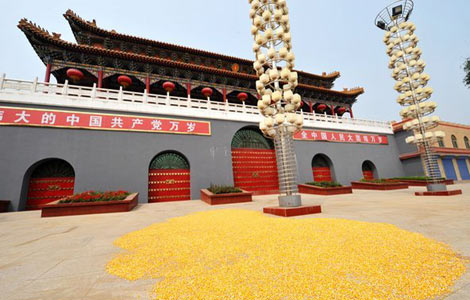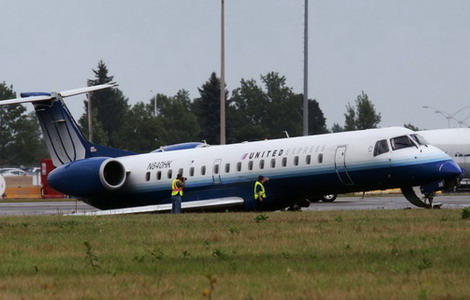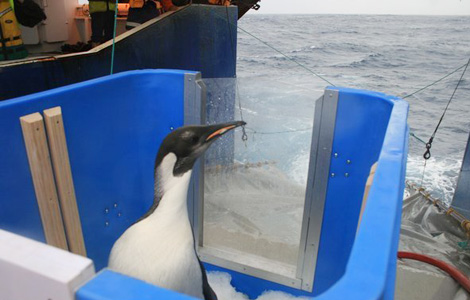Crisis management cannot help ConocoPhillips: Media
Updated: 2011-09-05 12:50
(Xinhua)
|
|||||||||||
BEIJING - If it lacks the least bit of social integrity and a responsible attitude towards the environment, so-called "crisis management" skills not only cannot help ConocoPhillips China, but may make it "go for wool and come home shorn," said a People's Daily article published Monday.
"Time after time, delays, negligence, cover-ups and cheating, ConocoPhillips China's oil field operation was finally stopped by China's maritime authority," said the article on the flagship newspaper of the Communist Party of China.
ConocoPhillips China (COPC), a wholly-owned subsidiary of the Houston-headquartered ConocoPhillips, has complied with a suspension order, said a statement on the company's website.
The suspension order issued by the State Oceanic Administration (SOA) came last Friday after COPC failed to meet the SOA's requirements for finding potential oil spill sources and sealing existing oil leaks before an August 31 deadline.
As the operator of the leaking Penglai 19-3 oil field in north China's Bohai Bay, COPC has been blamed for incidents that occurred on June 4 and June 17, respectively, and resulted in the release of approximately 700 barrels of oil into Bohai Bay and 2,500 barrels of mineral oil-based drilling mud onto the seabed.
However, on August 31 the company submitted a report to the SOA claiming that all oil spills had been cleaned up.
Moreover, public condemnation grew stronger after a China Central Television (CCTV) report revealed on Friday that, during a conversation between a CCTV reporter and an anonymous COPC employee, someone told the reporter via the ship's intercom system that the company intentionally set out to deceive Chinese authorities when it announced that it had met the SOA's requirements. The company has since denied this charge.
"There is a sharp contrast between the company's sensitivity regarding its image and its inadvertence towards China's oceanic environment," said the article.
The article stated that, using modern detection analysis techniques, it would be easy to judge whether the voice from the intercom belongs to a company employee, but "isn't it too serious for the company to fuss about such details, instead of addressing the problem that has lasted for three months?"
However, COPC used its crisis management skills quite well -- covering up the incident for as long as possible, lied in July by saying that the spills had been "basically cleaned up," and, on the day of the clean-up deadline, claimed that all leaks had been "thoroughly blocked," the newspaper said.
After the lie was exposed, COPC said that the delay was caused by "unsound weather conditions," it said.
According to the SOA investigation, the oil spill was an "inferior mistake" caused by substandard operations.
The oil spills have spread to beaches in Hebei and Liaoning provinces. The spills have also been blamed for losses in the provinces' tourism and aquatic farming industries.
"In the face of spreading oceanic pollution and fishermen's losses, it is both a legal and just requirement for the company to shoulder responsibility, regardless of its wealth value and crisis management skills," it said.
Hot Topics
Libya conflict, Gaddafi, Oil spill, Palace Museum scandal, Inflation, Japan's new PM, Trapped miners, Mooncake tax, Weekly photos, Hurricane Irene
Editor's Picks

|

|

|

|

|

|







